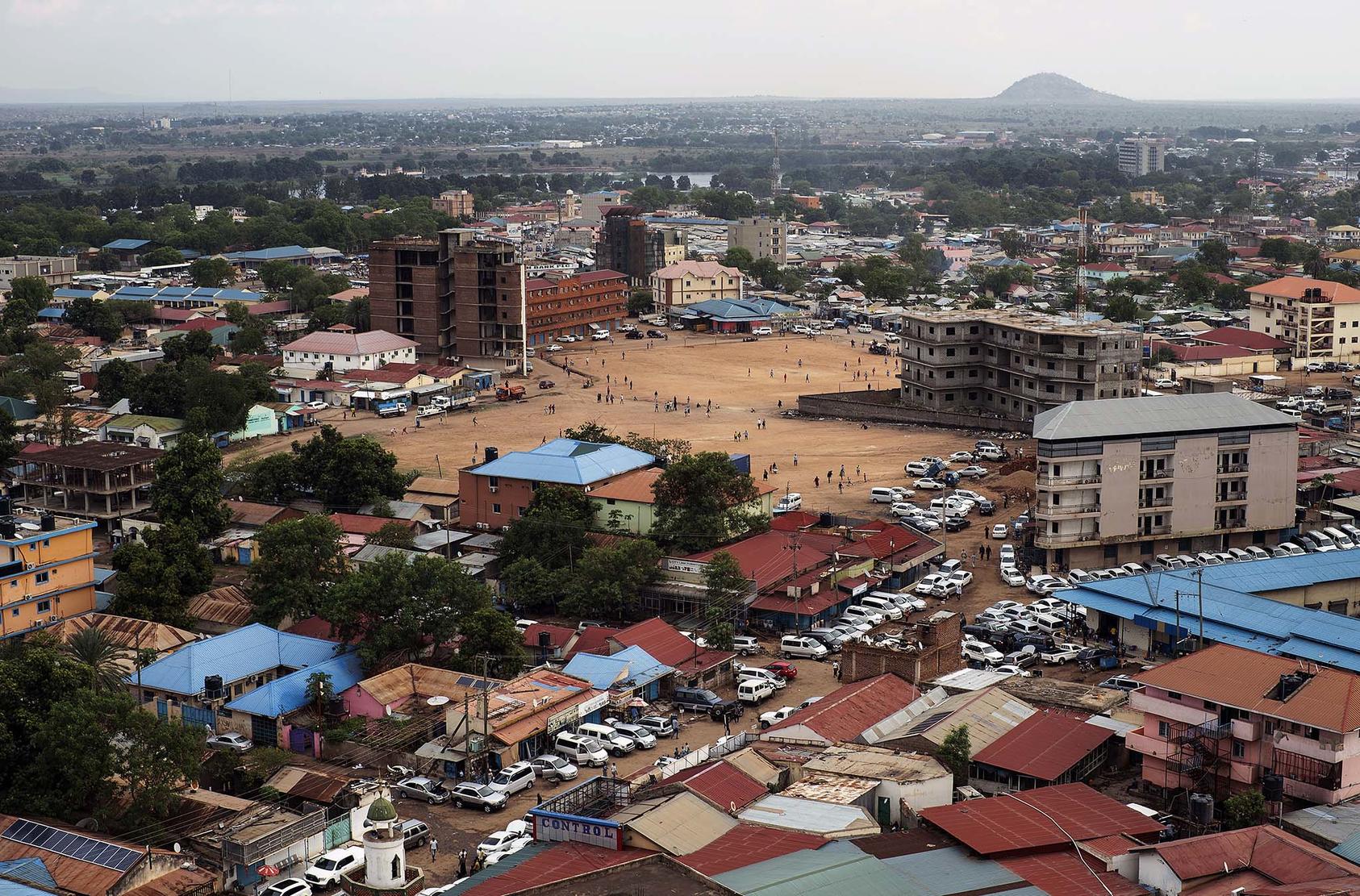
An overview of South Sudan's capital city, Juba, on March 21, 2018 (Kassie Bracken/The New York Times)
JUBA, Dec. 6 (Xinhua) -- South Sudan's economy contracted by 0.4 percent in the fiscal year of 2022/2023, marking an improvement from the negative 2.3 percent growth in the previous year, the World Bank said in a report released here on Wednesday.
According to the World Bank's latest South Sudan Economic Monitor, the country's economy experienced stagnation in 2023 due to the enduring impacts of flooding on oil production. This fiscal year spans from July 1, 2022, to June 30, 2023.
"Despite slower global growth and the persistent effects of recent catastrophic floods on domestic oil production, economic activity in South Sudan was supported by a stronger private sector, a return to relative peace, and increased government spending," the report said.
The report emphasized the significance of investing in human capital development as a cornerstone for economic growth, particularly addressing the low literacy rate in South Sudan.
Firas Raad, country manager for the World Bank in South Sudan, said that growth in the non-oil sector is expected to remain relatively resilient at around 6 percent in 2024, supported by higher government wage outlays and expanding domestic credit.
"The gains in macroeconomic stability and the relative return to peace have positively impacted activities in the non-oil sector. This is a significant development as South Sudan, being a young country, relies on the non-oil sector to provide jobs and incomes for most of its population," Raad said.
He added that moderate inflation and farm output are anticipated to improve as floods recede, predicting inflation to be below 10 percent in the medium term while maintaining tight monetary policy.
"Hence, diversifying towards the non-oil sector, improving productivity, and achieving sustainable and inclusive higher growth is critical, especially considering the underlying challenges of fragility in the country," Raad said.
The report projected a gradual rebound in growth, estimating it to reach over 2 percent in the medium term.
"This outlook primarily stems from an estimated 3 percent decline in oil sector growth in the fiscal year of 2024, followed by a gradual stabilization and recovery as oil production and value-added investments gradually resume," the Bank explained.
Benjamin Ayali Koyongwa, South Sudan's undersecretary for planning in the Ministry of Finance and Planning, attributed the improvement in macroeconomic stability and the containment of hyperinflation to the 2018 peace agreement and the macroeconomic, governance and exchange rate reforms initiated since 2021 with the support of development partners.
"The subsequent economic recovery faced disruptions due to concurrent external shocks such as COVID-19, the war in Ukraine, and unprecedented flooding, which affected both agricultural and oil production, contributing to pressing humanitarian needs," Koyongwa said.
Newer articles:
- Salida to South Sudan: Local woman supports tech for Sudanese students - 08/12/2023 05:00
- Sudan's Dangerous Descent Into Warlordism - 08/12/2023 03:52
- Delling in Sudan’s Nuba Mountains fears expansion of SPLM-N/RSF fighting - 08/12/2023 03:06
- Kenya back at UN shipping agency as Russia voted out - 08/12/2023 01:49
- Seychelles declares an emergency after deadly flooding and a huge blast at an explosives depot - 08/12/2023 00:30
Older news items
- Yei farmers exhibit resilience in agriculture trade show - 07/12/2023 06:43
- Japan commits USD 14.6 million for South Sudan’s peace and development - 07/12/2023 05:33
- South Sudan: Rare gesture as former Lopiding patient visits ICRC - 07/12/2023 05:02
- U.S. says Sudan's warring sides have committed war crimes - 07/12/2023 03:28
- Uganda secures Shs958bn loan to improve rural transport and facilitate regional integration - 07/12/2023 01:00
Latest news items (all categories):
- Beyond The Tribal & Regional Lines: A Call for South Sudan's National Unity - 04/10/2025 21:17
- Frontmen for Businesses Linked to Sudan’s Rapid Support Forces Identified in the UAE - 04/10/2025 21:08
- South Sudan opposition leader Machar claims immunity in treason trial - 04/10/2025 14:39
- Death of a rainmaker: When drought means murder in South Sudan - 04/10/2025 14:33
- Great Hunger: South Sudan is at Tipping Point - 04/10/2025 14:27
Random articles (all categories):
- UN official urges cooperation on regional forces in S. Sudan - 01/08/2017 23:02
- South Sudan failing after two years of freedom: US activists - 09/07/2013 05:53
- South Sudan At a Crossroads - 22/12/2016 05:35
- What New York Times article says about South Sudan - 13/06/2016 07:14
- INTERVIEW: Coronavirus adds to South Sudan's oil industry's woes - 03/08/2020 16:11
Popular articles:
- Who is the darkest person in the world, according to Guinness World Record? - 25/10/2022 02:34 - Read 130649 times
- School exam results in South Sudan show decline - 01/04/2012 17:58 - Read 24414 times
- No oil in troubled waters - 25/03/2014 15:02 - Read 23459 times
- Top 10 weakest currency exchange rates in Africa in 2023 - 19/07/2023 00:24 - Read 23151 times
- NDSU student from South Sudan receives scholarship - In-Forum - 29/09/2012 01:44 - Read 20395 times
